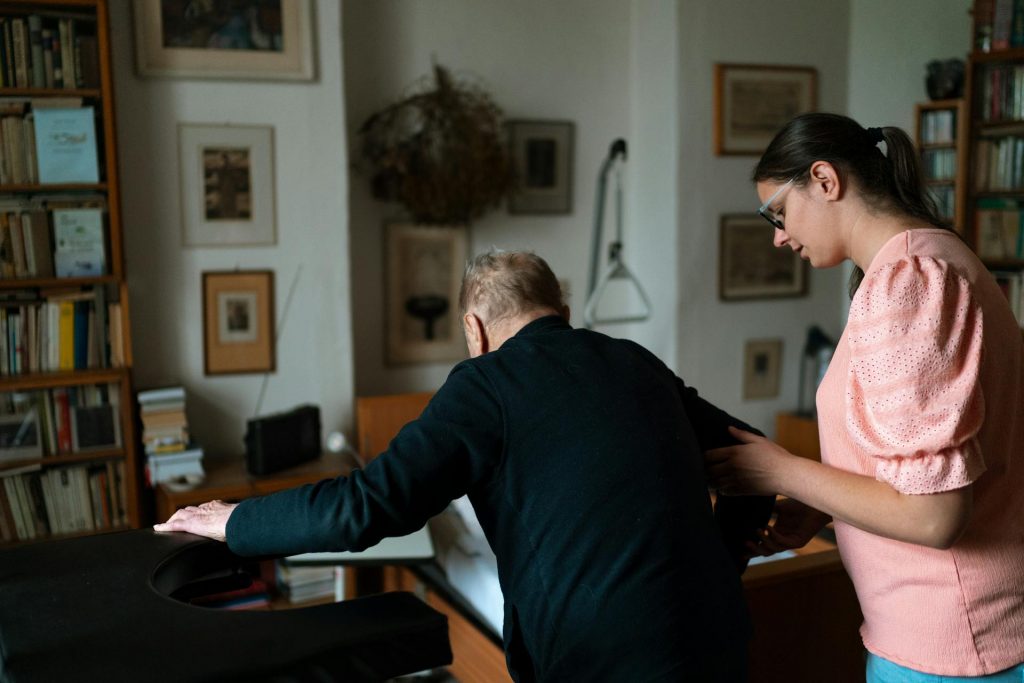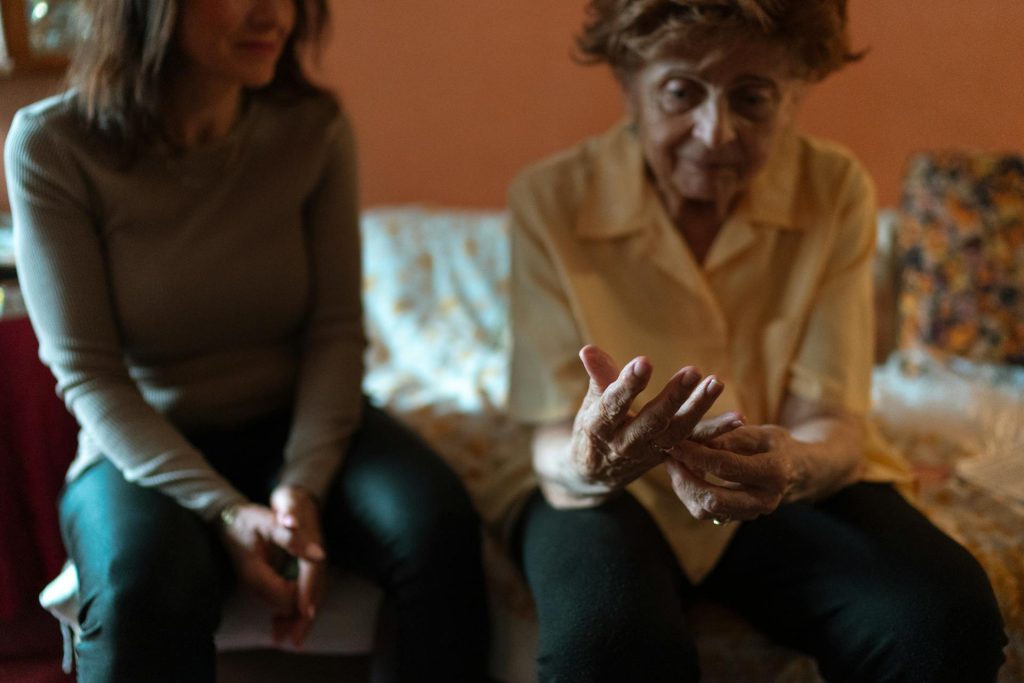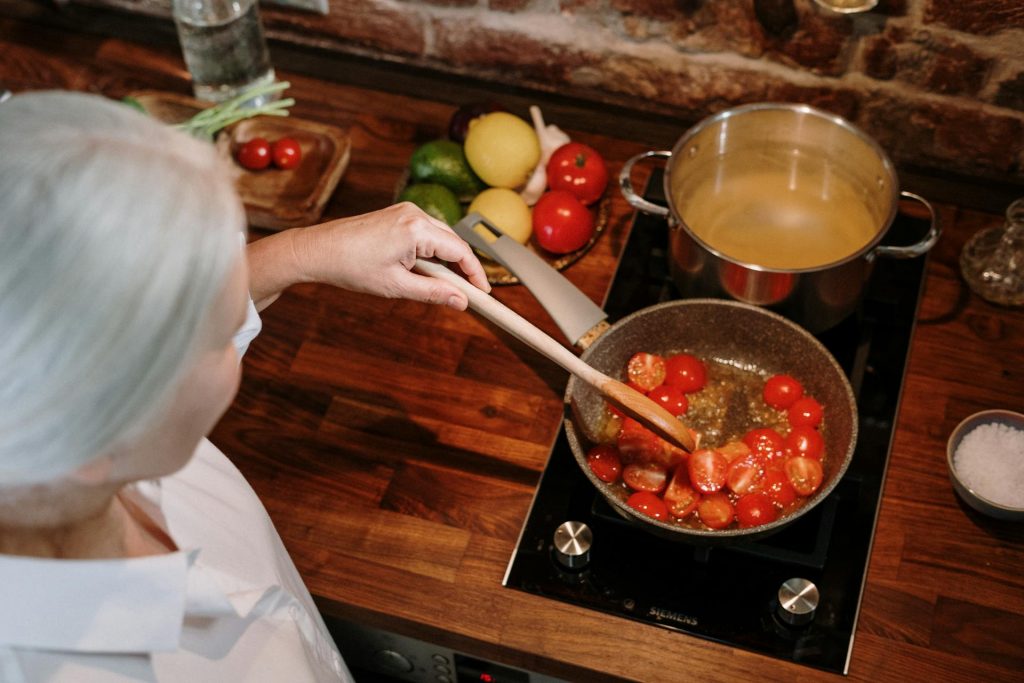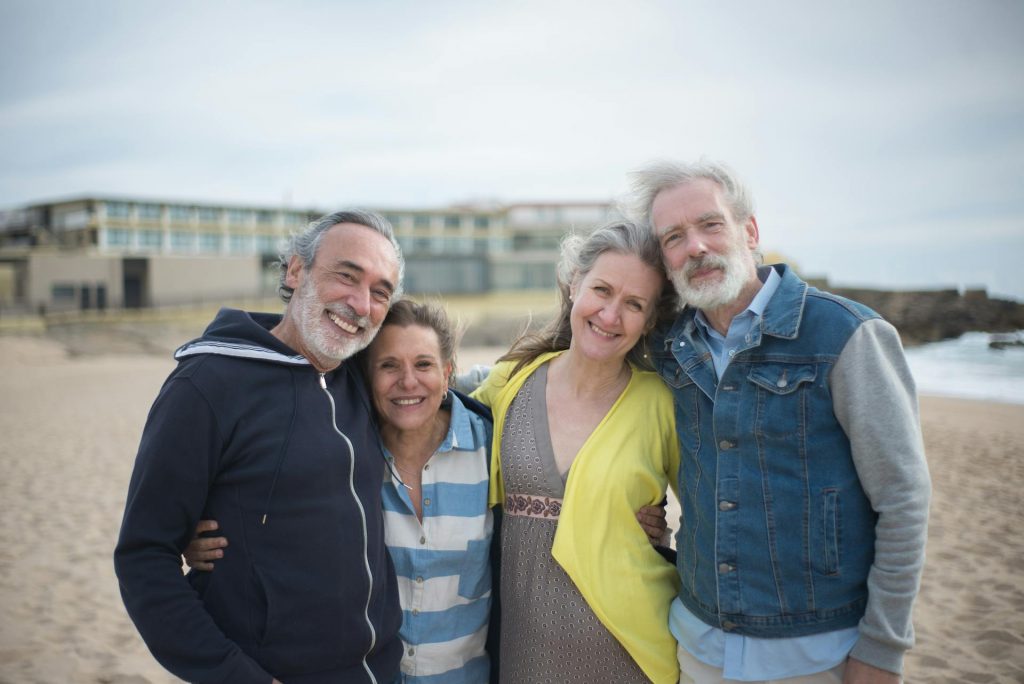Caring for a senior loved one is an immensely rewarding and meaningful responsibility, but it requires more than just performing daily tasks. It’s about creating an environment that feels like a sanctuary, a place where seniors can feel safe, valued, and supported
Safe & Comfortable Space

The foundation of any caregiver’s role is to create a safe and comfortable living environment. A sanctuary is a space where the senior feels at ease and secure. This doesn’t just mean adjusting furniture and adding soft lighting. It’s about tailoring the environment to the unique needs of the individual, whether it’s adding grab bars in the bathroom, making sure there are clear paths to walk, or having favorite personal items nearby to evoke a sense of home. Think of it as curating a space that fosters not only physical well-being but also emotional comfort, which is equally important for seniors.
Mastering Communication

Communication is at the heart of care giving, but it’s not always as simple as talking. Seniors may experience hearing loss or limited mobility that can make traditional forms of communication challenging. A caregiver’s role is to bridge these gaps with patience and empathy. Active listening, using simple language, and employing non-verbal cues like facial expressions or gestures can make communication easy. It’s also crucial to foster an open line of communication with other family members and healthcare professionals to ensure everyone is aligned in providing care.
Encouraging Independence

It’s easy for caregivers to take over tasks to make things “easier”, but the goal should always be to encourage the senior’s independence wherever possible. Maintaining a sense of autonomy is vital for a senior’s mental and emotional well-being. A caregiver’s role is to offer support, not control, whether it’s helping with a mobility device, guiding someone through a task, or simply offering a hand when needed. Encouraging elderly to take part in decisions about their own care and daily routines, while still being there for guidance, is a key to creating a nurturing, empowering environment.
Building Emotional Connections

While care giving often focuses on physical assistance, the emotional bond between caregiver and senior is one of the most powerful tools in providing quality care. Companionship plays a massive role in ensuring seniors feel supported and valued. Beyond helping with daily chores, caregivers should invest in building meaningful relationships. This could be as simple as sharing stories, engaging in hobbies together, or offering a friendly ear when needed. Emotional well-being is just as crucial as physical care and shouldn’t be overlooked. Encouraging conversations and keeping seniors mentally engaged can help combat feelings of loneliness or depression, which are common among older adults.
Top 5 Skills Every Caregiver Should Have

As a caregiver, you wear many hats. To create the perfect senior sanctuary, you’ll need to master several essential skills. Here are five must-have qualities for any caregiver:
Patience & Emotional Intelligence
Patience is crucial when dealing with the unpredictability of care giving. Seniors may experience mood changes or struggle with tasks that once came easily. Caregivers need to show empathy and emotional intelligence, understanding that many behaviors stem from confusion, fear, or frustration. Remaining calm and composed ensures that stressful situations don’t escalate and that the senior feels supported rather than judged.
Medical Knowledge & Practical Skills
Understanding the basics of senior healthcare can make a world of difference. This doesn’t mean you need to be a medical professional, but knowing how to manage medications, recognize early signs of illness, and understand the physical limitations of the person you’re caring for is vital. Practical skills, such as preparing healthy meals, assisting with mobility, or helping with daily hygiene tasks, are equally important.
Organizational Skills
Care giving comes with a lot of responsibilities, including coordinating appointments, managing medications, and maintaining a consistent routine. Having strong organizational skills will help you keep track of everything and avoid missing important tasks. A well-structured schedule makes care giving more efficient and reduces stress for both the caregiver and the senior.
Adaptability & Problem-Solving
Every day can bring new challenges in care giving. Whether it’s dealing with a sudden change in health, an emergency, or a shift in the senior’s emotional state, being flexible and adaptable is key. Strong problem-solving skills allow caregivers to think on their feet and come up with solutions quickly, ensuring that the senior’s needs are met regardless of the circumstances.
Compassion & Humor
Last but certainly not least, a caregiver’s heart should be filled with compassion. Showing love, care, and respect to the senior is the foundation of any successful care giving experience. In addition to compassion, having a sense of humor is invaluable. It helps to lighten tough moments, relieve stress, and create an atmosphere of warmth and connection. Laughter is a natural antidote to the stress of care giving and can make even difficult days feel brighter.
Care giving for a senior loved one is a rewarding yet challenging role. By mastering these essential skills, caregivers can create the perfect sanctuary, a place that feels safe, nurturing, and emotionally supportive. Whether you’re creating a physical environment that promotes safety or fostering a strong emotional bond, the goal is to make sure the senior feels cherished and cared for at every stage of life.
